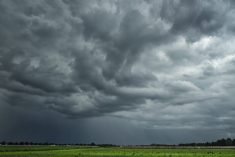Ottawa | Reuters — Canadian Prime Minister Justin Trudeau on Thursday announced a three-year carbon tax exemption for home heating oil and higher carbon tax rebates for people in rural areas, measures he said were intended to bring relief amid soaring costs of living.
Trudeau’s Liberal government has implemented a price on carbon to combat climate change, but some lawmakers in his own party have called for changes to the scheme, in particular in Atlantic Canada where a disproportionate number of households use oil to heat their homes.
Read Also

U.S. grains: CBOT soybeans, corn, wheat fall in USDA data aftermath
Chicago grains took a dive on Friday, following a closely watched U.S. government crop report and the release of export data that could provide clues into Chinese buying.
Trudeau, noting the impact of high inflation, said fighting climate change must be done while supporting all Canadians.
“This is an important moment where we’re adjusting policies so that they have the right outcome,” Trudeau told reporters in Ottawa. “We are doubling down on our fight against climate change … (while) we are supporting Canadians.”
The pause on the carbon tax on heating oil will begin in 14 days in provinces where the federal fuel charge applies, while the higher rebates for individuals and families in rural Canada will start in April 2024.
The increased rebate will be provided by doubling the rural top-up rate on the federal government’s pollution price rebate, otherwise known as the Climate Action Incentive Payment (CAIP), to 20 per cent from the current 10.
In Saskatchewan, for example, for the 2022 base year, an individual resident gets a baseline annual CAIP credit of $680, plus additional amounts per household for spouses/common-law partners and/or children under age 19. The top-up rate applies on the base amount.
“People who live in rural communities face unique realities, and this measure will help put even more money back in the pockets of families dealing with higher energy costs because they live outside a large city,” the government said in a release.
READ MORE: Carbon tax exemption bill C-234 clears Senate committee
Trudeau also announced measures to incentivize Canadians to install electric heat pumps. The government said switching from oil to heat pumps could save homeowners up to $2,500 a year on energy bills.
Canada, the world’s fourth-largest oil producer, is aiming to cut emissions 40-45 per cent below 2005 levels by 2030 and a steadily rising carbon price that will hit $170 a tonne by 2030, from $65 a tonne currently, is a key part of their plan.
The opposition Conservatives have vowed to scrap the carbon tax if they win the next election, set to take place by late 2025.
“After plummeting in the polls, a flailing, desperate Trudeau is now flipping and flopping on the carbon tax as I am holding a gigantic axe the tax rally in a Liberal-held Atlantic riding,” Conservative leader Pierre Poilievre wrote on social media platform X.
Climate and environment groups had a mixed reaction to Trudeau’s announcement.
Climate Action Network welcomed the move to accelerate the heat pump uptake and reduce energy poverty in Atlantic Canada, but others warned temporarily exempting home heating oil from carbon pricing introduced uncertainty.
“It sends the signal to emitters — and investors — that policy can be weakened in the future, diluting the carbon price’s effectiveness in driving the long-term, low-carbon investments required to reduce emissions,” said Dale Beugin, executive vice-president of the Canadian Climate Institute.
— Reporting for Reuters by Ismail Shakil and Nia Williams. Includes files from Glacier FarmMedia Network staff.














